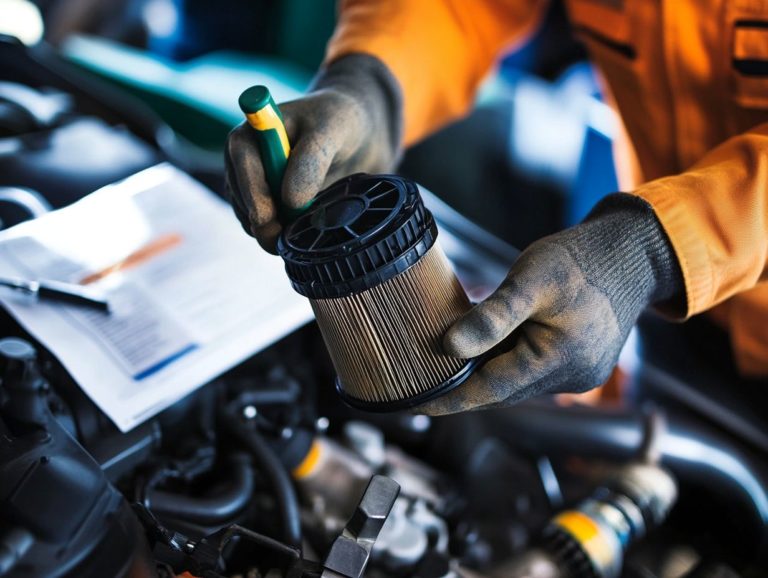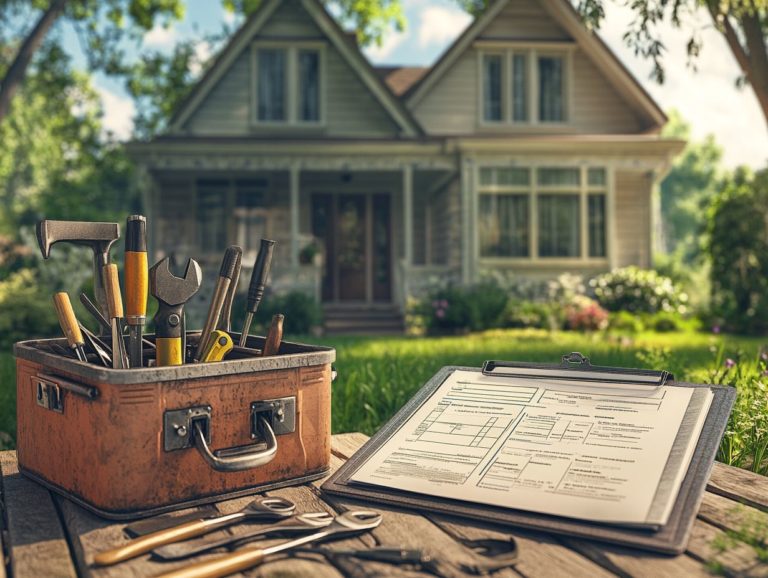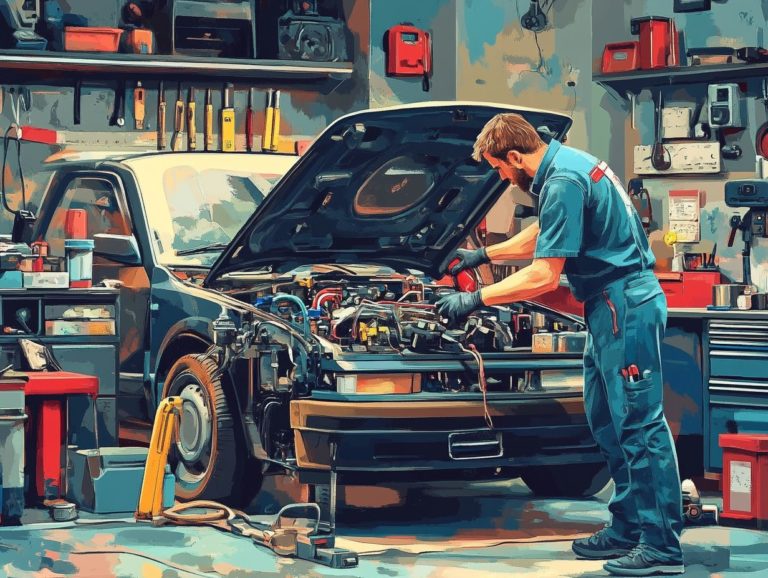How to Value Regular Car Maintenance
Regular car maintenance goes beyond being just another item on your to-do list; it’s vital for ensuring your vehicle operates smoothly and efficiently.
This article delves into the key reasons why maintaining your car is crucial. It showcases how it leads to substantial savings on repairs and extends the long life of your vehicle. You ll find guidance on essential maintenance tasks, recommended schedules, and the advantages of trusting professional mechanics.
It also highlights common pitfalls to avoid, ensuring your car stays in peak condition for the long haul. With simple steps, you can achieve lasting peace of mind while navigating the open road.
Contents
- Key Takeaways:
- The Importance of Regular Car Maintenance
- Cost Savings from Regular Maintenance
- How to Properly Maintain Your Car
- Essential Maintenance Tasks
- How Often to Schedule Maintenance
- Recommended Maintenance Schedule
- Benefits of Professional Maintenance
- Advantages of Using a Professional Mechanic
- Common Maintenance Mistakes to Avoid
- Frequently Asked Questions
- What is regular car maintenance and why is it important?
- How often should I schedule regular car maintenance?
- What are the benefits of regular car maintenance?
- Can I perform regular car maintenance tasks on my own?
- How do I determine the value of regular car maintenance for my specific vehicle?
- What happens if I neglect regular car maintenance?
Key Takeaways:
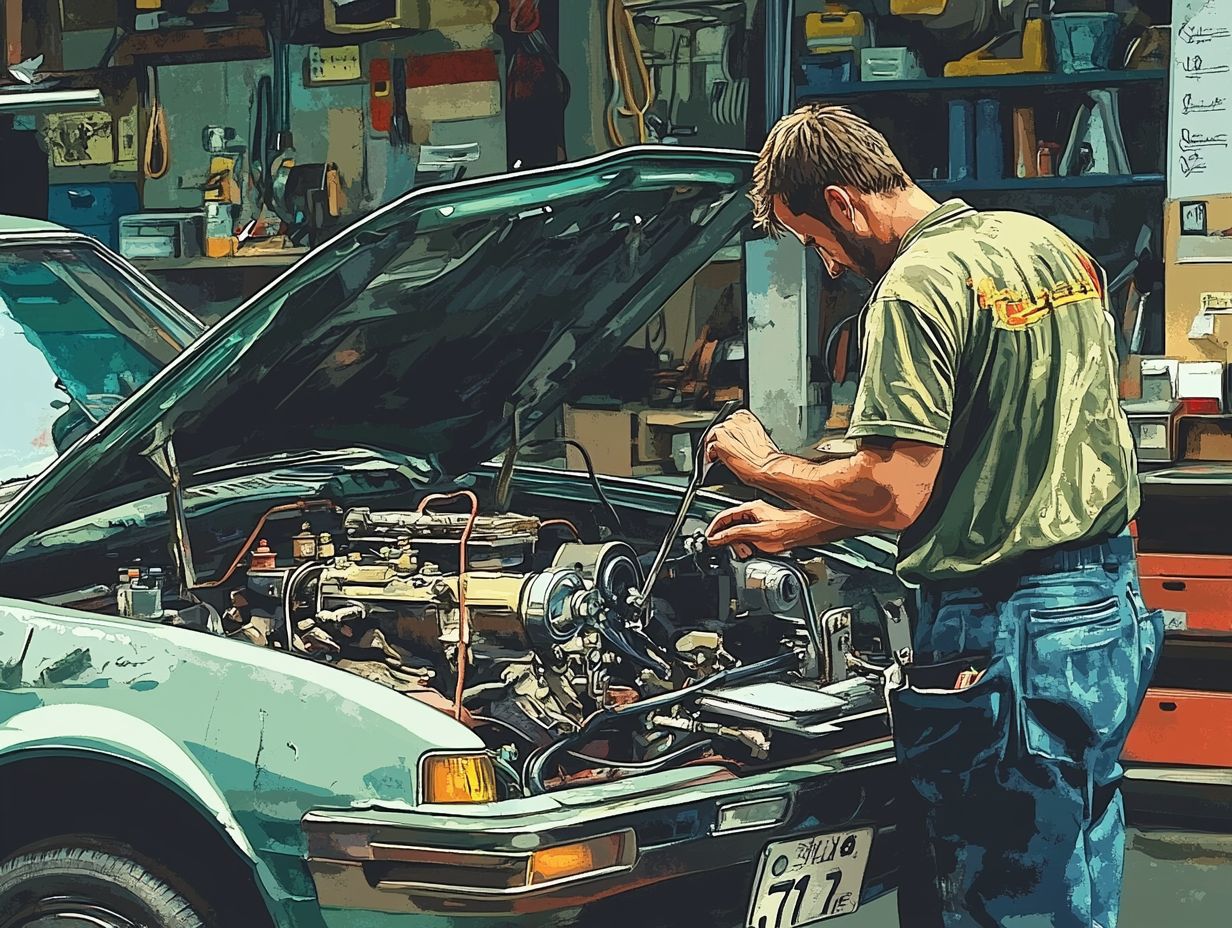
- Regular car maintenance is crucial for the long life and performance of your vehicle.
- Investing in regular maintenance can save you money in the long run by preventing costly repairs.
- Follow the recommended maintenance schedule and seek professional help to get the best results and avoid common maintenance mistakes.
The Importance of Regular Car Maintenance
Regular car maintenance is essential for you as a vehicle owner. It not only ensures your car’s long life but also enhances safety on the road, ultimately resulting in lower maintenance costs over time.
Routine tasks like oil changes and tire rotations might seem like minor inconveniences, but they are crucial in preventing unexpected repairs that could significantly affect your overall vehicle ownership costs.
Stick to a solid maintenance schedule to keep your vehicle running strong! You can avoid the pitfalls of neglect and keep your vehicle in optimal working condition, all while benefiting from insights from Consumer Reports on best practices.
Why Regular Maintenance is Necessary
Regular maintenance is essential to avoid unexpected repairs and the high costs that come with vehicle ownership.
By sticking to a regular maintenance schedule, you can enhance your automobile’s performance while significantly extending the lifespan of its vital components. This proactive approach helps minimize the chances of sudden breakdowns, which can often lead to hefty expenses.
It s crucial to acknowledge that maintenance needs can vary widely between luxury vehicles and standard cars.
Luxury vehicles typically demand specialized services and premium parts, which may raise the cost of routine upkeep. However, investing in regular maintenance for both types of vehicles ultimately pays off by ensuring reliability and optimal performance over time.
Cost Savings from Regular Maintenance
Investing in regular car maintenance not only guarantees a smoother driving experience, but it also leads to substantial cost savings over time. By prioritizing upkeep, you can significantly lower the average repair costs that often arise from neglecting your vehicle.
Long-Term Savings on Repairs
Long-term savings on repairs top the list of benefits when you commit to consistent car maintenance, as it effectively lowers the overall costs associated with various vehicle types.
Take regular oil changes for sedans, for example. They not only boost engine performance but also significantly extend the engine’s lifespan, slashing the chances of those costly rebuilds.
For SUVs and trucks, routine checks on the transmission fluid and brake systems are essential. These checks can prevent major failures that could lead to expenses in the thousands.
Proper tire rotation and alignment do more than just keep your ride smooth they also enhance fuel efficiency and minimize the risk of premature tire wear.
Implementing preventive measures, like maintaining the cooling system, can save you from the hefty bills associated with radiator or engine repairs.
Ultimately, by prioritizing maintenance, you can sidestep unexpected expenses. Who wouldn’t want to save money while enjoying peace of mind on the road?
How to Properly Maintain Your Car
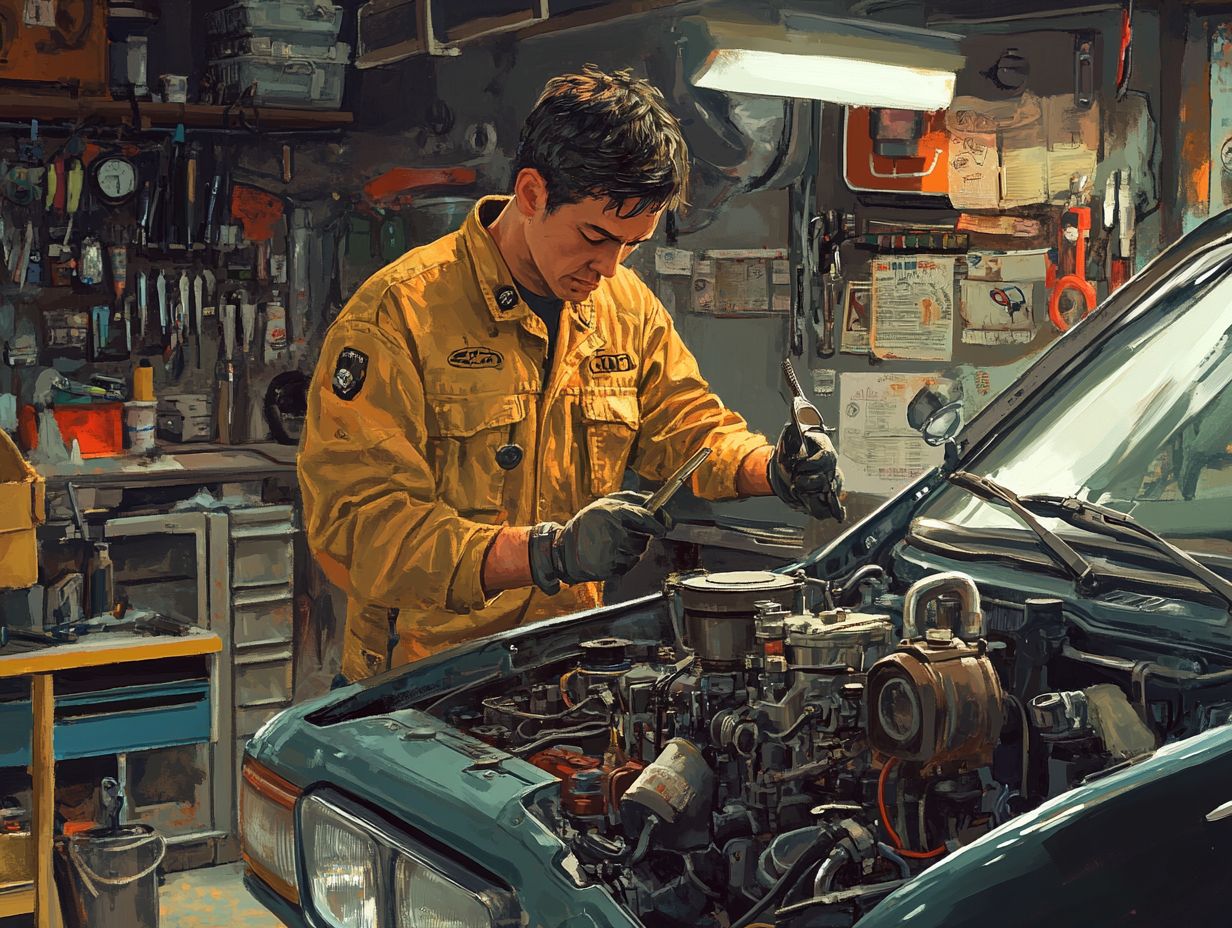
Proper car maintenance entails a series of essential tasks that you, as a vehicle owner, should seamlessly weave into your routine.
Regular oil changes, tire rotations, and inspections at a reputable repair shop are vital components. By prioritizing these tasks, you can effectively budget for maintenance costs and ensure your vehicle remains in peak condition.
Don t wait! Schedule your next maintenance check now to keep your car in top shape!
Essential Maintenance Tasks
Essential maintenance tasks, such as oil changes and tire rotations, are fundamental to keeping your vehicle’s components in prime condition. Regularly performing these tasks ensures that each part operates smoothly and efficiently, ultimately enhancing your driving experience!
For instance, changing the oil at the recommended intervals not only removes contaminants but also prevents engine wear, extending its lifespan. Tire rotations promote even wear across all tires, leading to better handling and improved fuel efficiency.
Check and replace air filters to enhance engine performance and indoor air quality. Don’t overlook regular brake inspections; they are crucial for ensuring vehicle safety. Make these tasks a priority to keep your vehicle in top shape!
How Often to Schedule Maintenance
Determining the frequency of maintenance for your vehicle is crucial for its longevity, and this depends on the type of vehicle you own. Resources like Consumer Reports offer valuable guidelines to help you, the discerning driver, establish an effective routine maintenance schedule tailored to your needs.
Recommended Maintenance Schedule
A well-recommended maintenance schedule includes essential routine services, such as oil changes and tire rotations, at specific intervals tailored to your vehicle type.
Understanding these schedules is vital for ensuring your vehicle s longevity and peak performance. For example, standard passenger cars typically thrive with oil changes every 5,000 to 7,500 miles, while SUVs and trucks often demand more frequent checks due to their heavier loads.
Regarding tire rotations, it s generally advisable to perform them every 6,000 to 8,000 miles to ensure even tread wear. Regular inspections of brakes, fluid levels, and air filters can save you from costly repairs down the line.
By committing to a personalized maintenance plan, you can significantly enhance safety, improve fuel efficiency, and ultimately extend the lifespan of your vehicle.
Benefits of Professional Maintenance
Choosing professional maintenance offers a wealth of benefits. You gain access to expert knowledge and specialized tools that ensure every vehicle component is serviced accurately.
This meticulous approach not only leads to reduced maintenance costs but also enhances the overall performance of your vehicle.
Advantages of Using a Professional Mechanic
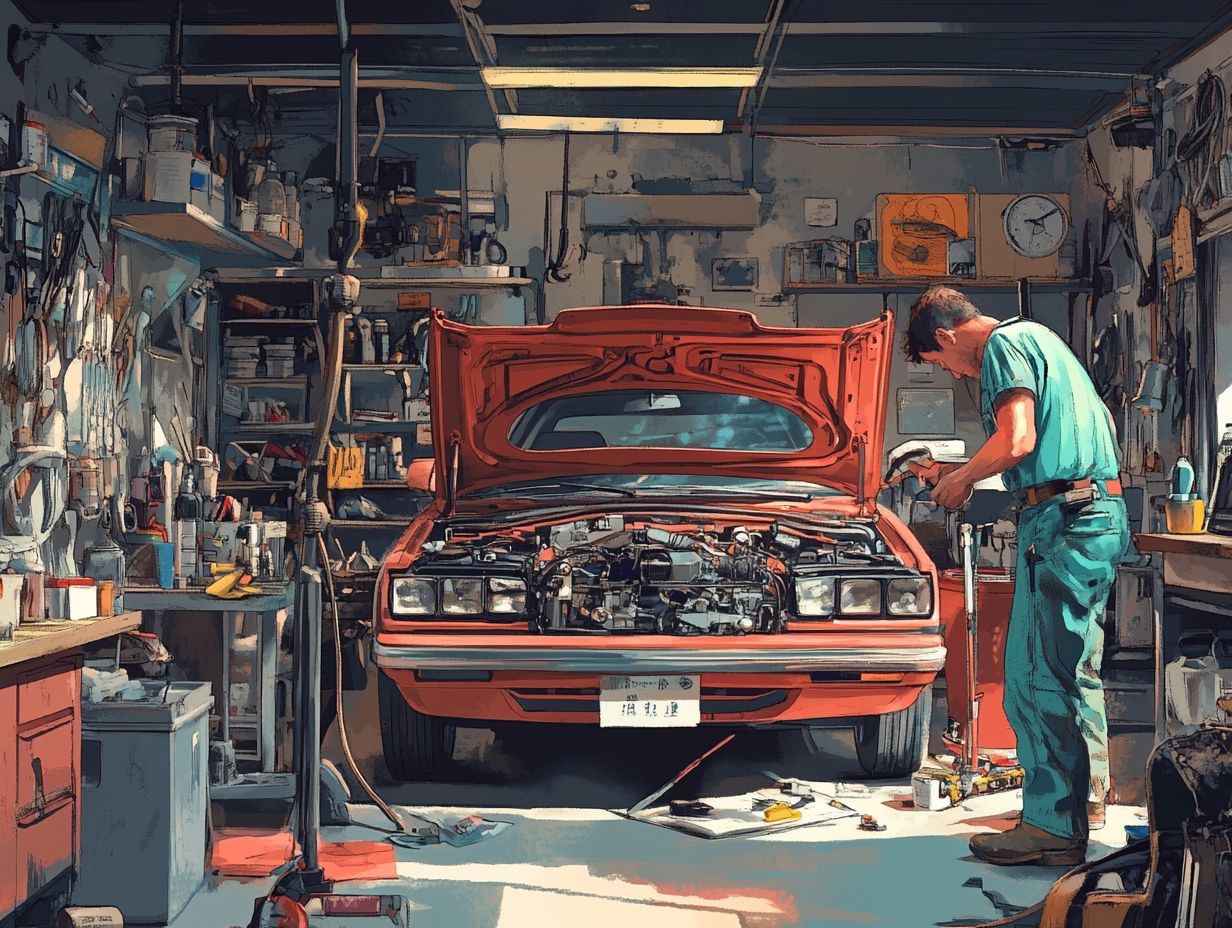
Utilizing a professional mechanic from a reputable repair shop can significantly lower the maintenance costs associated with vehicle ownership while ensuring you receive top-notch service.
This advantage stems from their extensive training and experience in diagnosing and resolving a wide array of issues that may elude less experienced hands. Professional mechanics undergo rigorous assessments and certifications, equipping them with a refined skill set for precise and efficient repairs.
They also have access to advanced tools and diagnostic equipment, enabling them to identify problems with a level of accuracy that often exceeds that of someone without specialized training.
As a result, you can expect not only thorough repairs but also valuable insights into preventive maintenance, ultimately maximizing both the longevity and performance of your vehicle.
Common Maintenance Mistakes to Avoid
Avoiding common maintenance mistakes is essential for you as a vehicle owner. These errors can not only inflate your repair costs but also compromise your vehicle’s performance over time.
What Not to Do When Maintaining Your Car
When maintaining your car, avoid mistakes that can lead to costly repairs and damage. These mistakes can significantly impact your maintenance budget.
Many vehicle owners overlook fundamental practices. If ignored, these can have long-term consequences. For instance, not changing your oil regularly can lead to engine wear. Similarly, failing to check your tire pressure can result in poor fuel efficiency and increased tire wear.
Skipping scheduled inspections and dismissing warning lights turn minor issues into costly repairs. By sticking to recommended maintenance practices like following the manufacturer s service schedule and using quality replacement parts you protect your investment and enhance the longevity and performance of your vehicle.
Understanding these strategies is vital for anyone wanting to avoid unnecessary headaches and expenses.
Frequently Asked Questions
What is regular car maintenance and why is it important?
Regular car maintenance refers to the ongoing care and upkeep of a vehicle. This includes routine tasks such as oil changes, tire rotations, and brake inspections. Regular maintenance ensures that your car is in good working condition, preventing costly repairs and extending its lifespan.
How often should I schedule regular car maintenance?
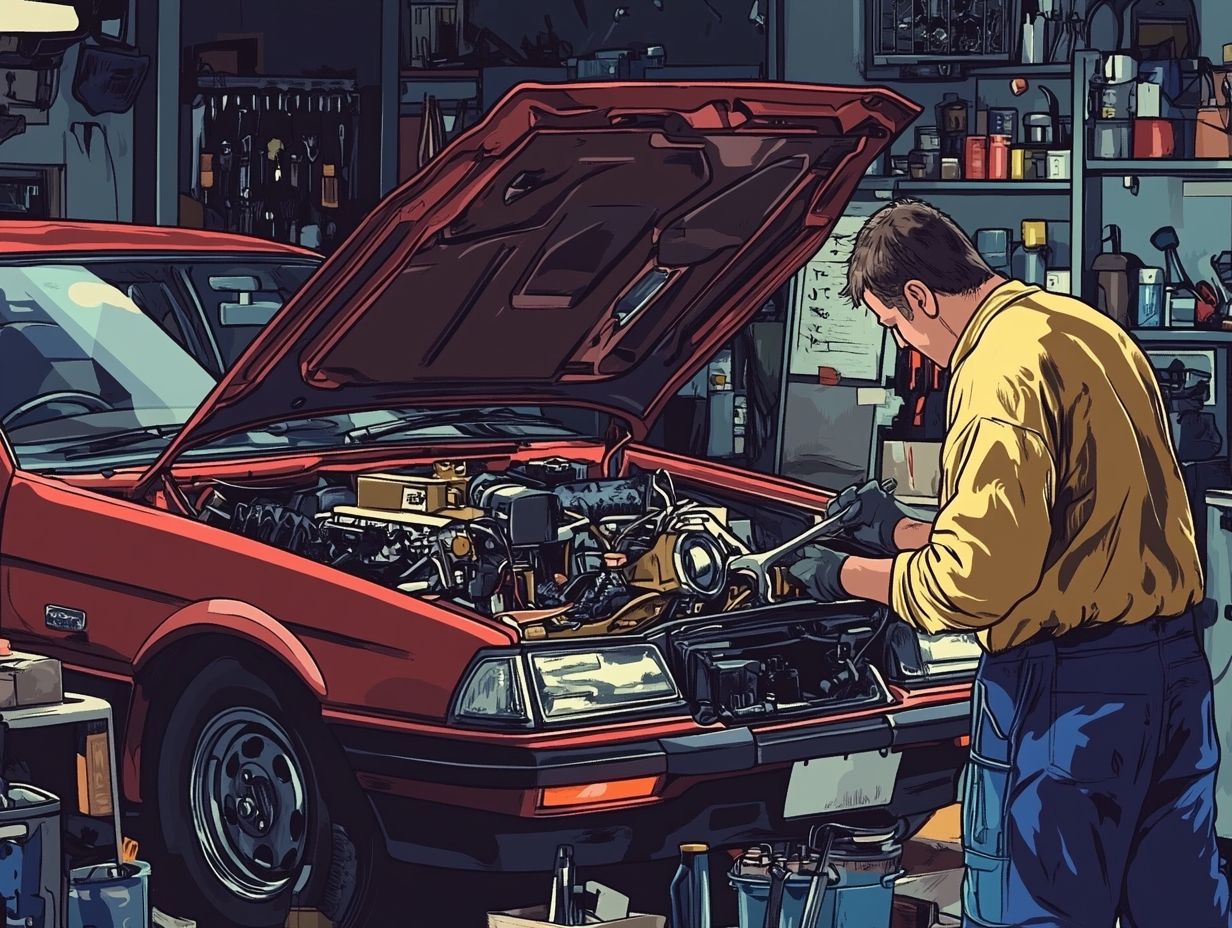
The frequency of regular car maintenance varies depending on your vehicle and driving habits. However, it is generally recommended to have your car serviced every 3,000 to 5,000 miles or every 3 to 6 months.
What are the benefits of regular car maintenance?
Regular car maintenance offers several benefits, including improved performance, increased fuel efficiency, and a longer lifespan for your vehicle. It also helps identify and address potential issues before they become major problems.
Can I perform regular car maintenance tasks on my own?
While some basic maintenance tasks can be done at home, it s often better to have a professional mechanic handle more complex tasks. They have the expertise and equipment to properly diagnose and fix any issues.
How do I determine the value of regular car maintenance for my specific vehicle?
The value of regular car maintenance can be assessed by considering the cost of potential repairs and replacements if maintenance is neglected. It can also be measured by the peace of mind that comes with a well-maintained vehicle, along with insights from tips for efficient car maintenance budgeting that help you manage costs effectively.
What happens if I neglect regular car maintenance?
If regular car maintenance is neglected, it can lead to more frequent and costly repairs in the future. It may also decrease the overall value and lifespan of your vehicle. Stay on top of maintenance tasks to avoid these potential consequences.


